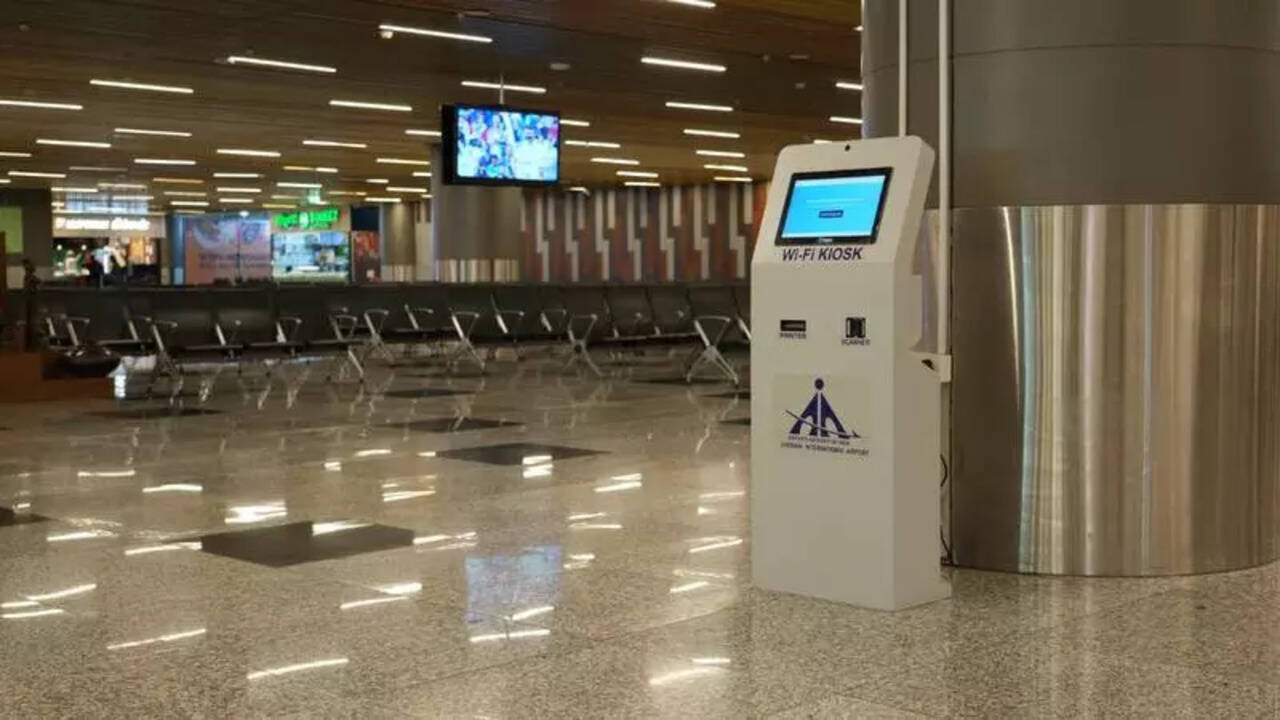Chennai International Airport’s international terminal has recently rolled out a complimentary Wi-Fi service. This long-anticipated amenity, particularly crucial for international visitors without local mobile connectivity, has rapidly gained traction, transforming the travel experience for hundreds daily and marking a pivotal step in Chennai’s journey towards becoming a smarter, more equitable city.
The immediate impact of the new Wi-Fi service has been notable. On June 26, the day of its launch, 421 passengers successfully connected to the network. This figure swiftly escalated to 636 users by June 29, demonstrating not only a keen demand but also the efficacy of initial awareness campaigns. With approximately 18,000 international flyers transiting through Chennai Airport daily, authorities anticipate a sustained upward trend in usage, underscoring the vital role of seamless connectivity in modern travel. This initiative aligns perfectly with the broader vision of creating urban spaces that are accessible and empowering for all, irrespective of their origin. Beyond mere convenience, the provision of free Wi-Fi addresses a critical socio-economic challenge faced by foreign nationals upon arrival. Previously, the absence of accessible internet left many vulnerable to predatory practices, such as overcharging by touts for transport services. The ability to instantly book a ride or communicate with contacts from within the terminal significantly enhances safety and empowers travellers, fostering a more secure and equitable arrival experience. This is a testament to how targeted technological interventions can directly contribute to urban equity and safeguard vulnerable populations.
The implementation of this service also highlights a broader shift in airport management philosophy. For years, the lack of Wi-Fi at Chennai Airport drew considerable criticism, largely due to a past inclination towards a revenue-generating model for the Airports Authority of India (AAI). The current initiative, offering 500MB of data or 45 minutes of usage, whichever comes earlier, signals a progressive pivot towards prioritising passenger welfare and seamless service delivery over immediate monetisation. This human-centric approach is fundamental to building sustainable and user-friendly urban infrastructure. Accessing the service has been streamlined to cater to both domestic and international users. While Indian SIM card holders can connect via a simple OTP verification, foreign nationals, who often lack local SIM cards, can obtain an OTP by scanning their passports and tickets at designated kiosks. This dual-access mechanism ensures inclusivity and removes a significant barrier for global travellers, reflecting a commitment to gender-neutral and equitable access to essential services within public spaces. Furthermore, “Digi Buddies,” originally deployed to promote the DigiYatra initiative, are now assisting passengers with Wi-Fi access, reinforcing a supportive ecosystem for digital adoption.
This development at Chennai Airport serves as a blueprint for other urban centres striving for integrated, smart infrastructure. By embracing technology not as a luxury but as a fundamental right for travellers, Chennai is enhancing its appeal as a global hub. The increased satisfaction among passengers, particularly foreign nationals, is poised to positively impact tourism and business interactions, contributing to the city’s economic vitality in a sustainable manner. The focus on easy, accessible connectivity embodies the principles of a truly smart city – one where technology serves to uplift and empower its diverse populace. The initiative also subtly promotes environmental sustainability by potentially reducing reliance on physical maps and information brochures, as travellers can access digital resources readily. Moreover, by encouraging efficient cab bookings, it could contribute to better traffic management around the airport, indirectly impacting carbon emissions from idling vehicles. The long-term success of such initiatives will lie in continuous evaluation of user needs and adaptation, ensuring that technological advancements at public infrastructures like airports remain aligned with the broader goals of urban sustainability and human well-being.
Also Read :Bengaluru Airport Introduces 10 Ultra-Fast EV Chargers for Airside Transport


